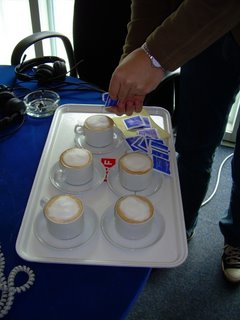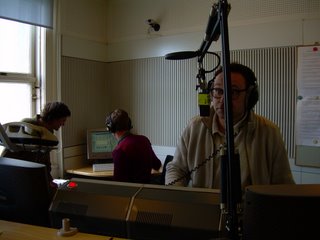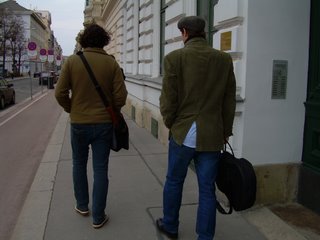Anais Nin kept a private journal throughout her life, resulting in a massive, multi-volume collection of her writings. It would take me a lifetime to read them all. I have managed to read a couple of them, including this one, Henry and June (1931 through 1932), which covers the development of the relationship with her most intense lover, Henry Miller (Tropic of Cancer) and the complexities therein--Henry being married to June Miller (whom Anais fancies as well) and Anais being married to a banker named Hugo who doesn't really know about the affair.
The most exciting thing about reading this book is that it is so honest and daring--it could have been discovered by her husband, or anyone for that matter, creating a terrible scandal. She makes referece a few times of hiding places she chooses for her journal and for the letters she receives from Henry, who feels compelled to send love letters, sometimes daily, right to her home. I still have a few pages left to read so I hesitate to say anything about Hugo not finding the journal because there is always the feeling, in reading this journal, that it will be discovered. I get so wrapped up in the drama that I sometimes feel I should hide the journal myself--to keep it from being discovered by anyone who would think it was all my idea, that I had something to do with this. But even stranger is the feelilng of protection for this book that I've developed. Ivan mentioned that he wanted to read it when I was finished and I thought, "Oh, no way. It's too private." Because it is this woman's real diary, after all.
It's like her full-time job to keep and write about lovers. Especially Henry. There's an explosive sensual compatability between them, and a philosophical/conversational identification that fuels their writing. They feed material to one another and they workshop it together constantly. And the explosive sensual compatibility... I really can't elaborate. Not here.
This, however, might suffice. It's a part of a letter from Henry that Anais kept in her journal.
Henry Miller to Anais Nin:
"Don't expect me to be sane any more. Don't let's be sensible. It was a marriage at Louveciennes, you can't dispute it. I came away with a piece of you sticking to me; I am walking about swimming, in an ocean of blood, your Andalusian blood, distilled and poisonous. Everything I do and say and think relates back to our marriage. I saw you as the mistress of your home, a Moor with a heavy face, a Negress with a white body, eyes all over your skin, woman, woman, woman. I can't see how I can go on living away from you--these intermissions are death. How did it seem to you when Hugo came back? Was I still there? I can't picture you moving about with him as you did with me. Legs closed. Frailty. Sweet treacherous acquiescence. Bird docility. You became a woman with me. I was almost terrified by it. You are not just thirty years old--you are a thousand years old. [. . . ]
While it thunders and lightnings I lie on the bed and go though wild dreams. We're in Seville, and then in Fez, and then in Capri, and then in Havana. We're journeying constantly, but there is always a machine and books, and your body is always close to me and the look in your eyes never changes. People are saying we will be miserable, we will regret, but we are happy, we are laughing always, we are singing. We are talking Spanish and French and Arabic and Turkish. We are admitted everywhere and they strew our path with flowers. I say this is a wild dream--but it is this dream I want to realize. Life and literature combined; love, the dynamo; you, with your chameleon's soul, giving me a thousand loves, being anchored always in no matter what storm, home wherever you are. In the mornings, continuing where we left off. Resurrection after resurrection. You asserting yourself, getting the rich varied life you desire; and the more you assert yourself the more you want me, need me. Your voice getting hoarser, deeper, your eyes blacker, your blood thicker, your body fuller. A voluptuous servility and tyrannical necessity. More cruel now than before--consciously, wilfully cruel. The insatiable delight of experience. . . "
Friday, May 19, 2006
Friday, May 05, 2006
Wednesday, May 03, 2006
Radio 4 Vienna



We were told that the national radio station in Vienna plays our song "Leaves Do Fall" a number of times a day and that it is very popular. That would be like NPR's Fresh Air playing the song every day, which would be just crazy. So we were honored to go into the studios for an interview and a live, accoustic performance. We did the interview in English but I never wanted so desperately to be able to address people, in this case an entire nation, in their own language--they listen to our stories in our language, I'd love to thank them for that in theirs.
It's also common for interview questions to be general things like, "What's it like being on tour?" or "What's it like being in a band?" and those questions beg for answers like, "good" and "fine." But this time, the questions were so specific--they were about content. For example: "The song 'Leaves Do Fall' is a Romeo and Juliet story, or a star-crosssed lovers story isn't it?" Yes. Finally. The story!!! Yes sir, it is. And then there's something to talk about.
And look at the coffee they brought us! Reinhardt, our very sensitive and sweet tour manager in Vienna said, "I was nervous to go to the station, I thought, 'Oh, what happen if it goes not so good? What if it goes badly?'" Ivan said, "You were nervous? You don't have to be nervous." Reinhardt said, "Yes, but, it was the country and it was live so, it could have gone very badly." I tried to tell him about how even if it goes badly, it is still okay. Then Ivan said, "Man, you're with The Rosebuds. Know what I'm saying?" He laughed and then we all laughed.
Subscribe to:
Comments (Atom)





